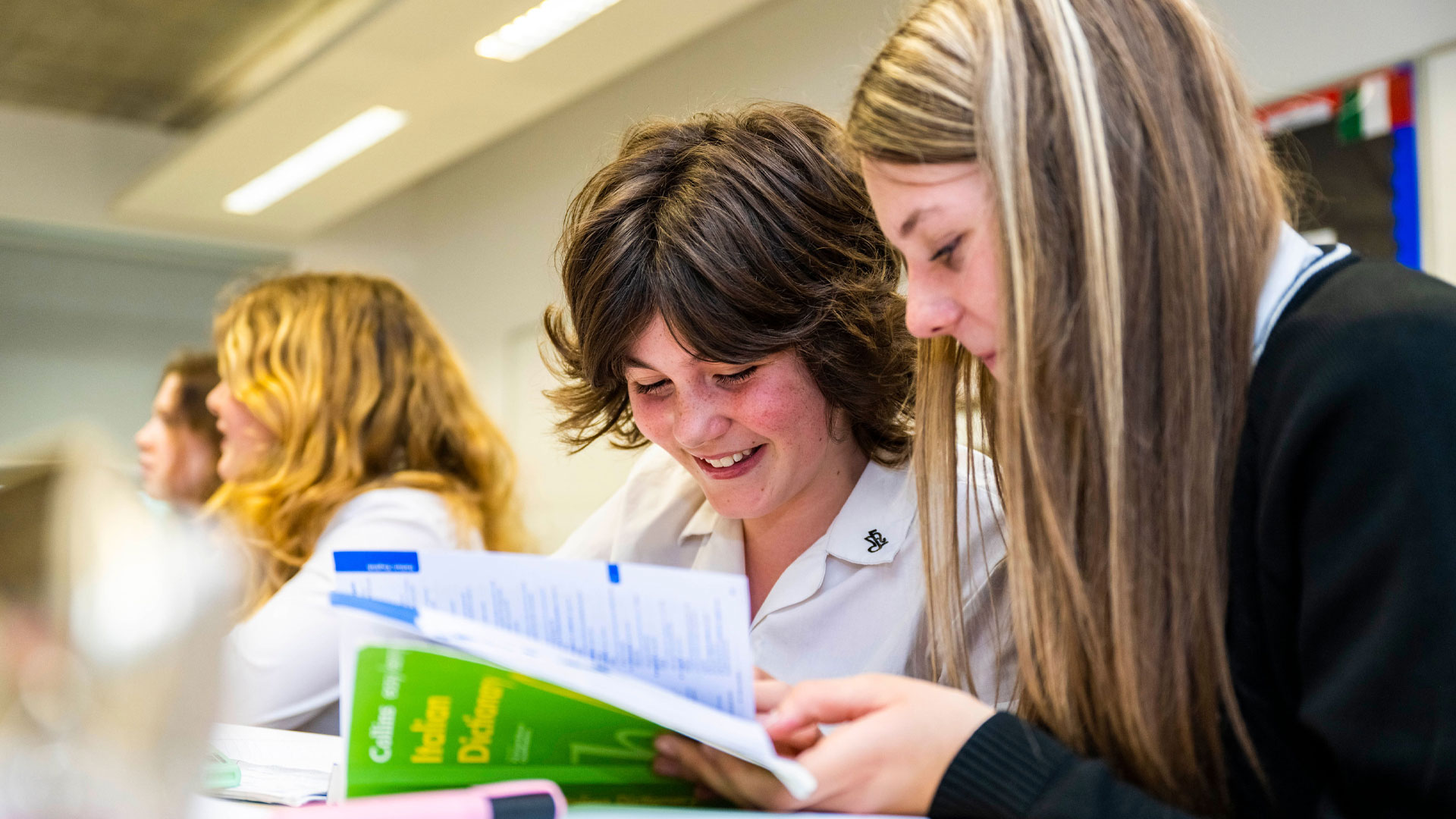Are you staring at a pile of notes with exams around the corner and wondering which topics deserve the most time, especially among the Hardest GCSE Subjects like maths and chemistry? Picking the right revision plan, practising past papers, and sharpening exam technique can cut through the fog and build genuine confidence. This guide lays out a clear revision timetable, time management tips, mock exam routines, and practice question strategies so you feel fully prepared and ready to succeed.
To achieve that goal, Ucademy's online tutoring in the UK offers tailored one-to-one sessions across core and Hardest GCSE Subjects, providing clear explanations, focused revision sessions, targeted practice questions, and a study plan that fits your timetable, helping you build confidence and reduce exam stress.
What are GCSEs?

GCSEs are national qualifications taken by most students in England, Wales, and Northern Ireland between the ages of 14 and 16. Schools follow subject specifications set by exam boards, and teaching usually spans year 10 and year 11, with final exams at the end of that period. Students use GCSE results to move into sixth form college, further education, apprenticeships, or employment, and many employers and colleges set entry requirements based on specific grades. Exam boards publish past papers, mark schemes, and grade boundaries that shape teaching and revision.
Core Subjects and Wise Subject Choices
Every student typically studies English, mathematics, and science as core requirements, while also selecting option subjects such as history, geography, modern foreign languages, art, drama, music, computing, and design technology. Consider what you enjoy, where you excel, and which subjects can lead to A levels or vocational training. Ask your teachers for predicted grades and check college course requirements before finalising choices so you avoid dead ends.
How Assessment Works and What the Grades Mean
Most GCSE assessment comes from final written exams, but some subjects include controlled assessments, practical tasks, or coursework that count toward the final grade. Since the grade reform, my students receive numbers from 9 to 1, with nine being the highest. A grade 4 is a standard pass, and a grade 5 is a strong pass. Exam boards publish examiner reports and marking criteria that explain how answers earn marks and where students typically lose marks.
Plan Your Study: Practical Revision Strategies That Work
Create a revision plan that maps topics to weeks and slots for active practice. Use past papers under timed conditions to build exam technique and to learn command words and how marks are awarded. Combine spaced repetition with active recall using flashcards, mind maps, and short practice questions. Create a revision timetable that includes 45- to 90-minute focused sessions with short breaks, and rotate subjects to avoid fatigue. Which topic will you attack first this week?
Make Past Papers and Mark Schemes Your Core Resource
Work through recent exam papers from your exam board and mark your answers against published mark schemes. Pay attention to examiner comments and to grade boundaries for the year so you know what a four or a seven looks like in practice. Use model answers to learn how to structure long responses and how to include key terms and technical language.
Mock Exams and Tracking Progress
Treat mocks like the real thing. Sit them under exam conditions, then grade them strictly—track which topics cause repeated errors and prioritise those in your next revision block. Use teacher feedback to adjust your study plan and keep a running list of formulae, facts, and quotations you must memorise.
Time Management and Exam Technique for Higher Scores
Practice reading the paper carefully within the reading time. Allocate minutes per question based on marks and leave time to check answers. For essays, plan a quick outline before you write and use paragraphs that answer the question directly. For calculations, show working clearly because marks often come from the method, even if the final answer is wrong. Bring spare pens, a ruler, and a calculator with fresh batteries.
Conquer Exam Stress and Build Resilience
Use regular physical activity, sleep, and simple breathing techniques to manage nerves. Break large tasks into small daily goals to avoid feeling overwhelmed and use short review sessions before bedtime, which helps memory consolidation. If anxiety spikes during an exam, use a one-minute breathing reset, then resume with the most straightforward question to build confidence.
Tackling the Hardest GCSE Subjects With Targeted Tactics
Maths
Practice lots of past questions and learn key methods so they become automatic. Memorise formulae and use exam board formula sheets where allowed. Practice mental checks and estimation to spot mistakes.
Further Maths
Focus on proof technique and extended problem-solving. Work on past papers from the correct exam board and discuss solutions with your teacher.
Physics and Chemistry
link theory to calculations and practice applying equations to unfamiliar contexts. Do required practicals and learn how to report methods, results, and conclusions.
Biology
learn key terms and processes in sequence and practise short structured answers and application questions.
History
plan essay structures and practise source analysis using the examiner command words. Learn key dates, people, and turning points with concise timelines.
Modern Foreign Languages
Develop a daily habit of practicing vocabulary, speaking, and listening. Utilize past speaking and listening papers, along with active recall, to reinforce verb conjugations and phrases.
English Literature
memorise quotations and practise planning essays that link theme, character, and context to the question. Use model paragraphs to learn paragraph structure.
Computer Science
Code regularly and practise tracing algorithms and explaining time complexity. Work through past problem-solving questions under time pressure.
Resources That Speed Up Progress
Use exam board specifications, topic checklists, and examiner reports to guide revision. Combine textbooks, revision guides, and online platforms with teacher-led revision sessions. Join or form a small study group to test each other with questions and explain concepts aloud.
Small Actions to Start Today
Pick one weak topic and schedule three focused sessions on it this week. Download two recent past papers from your exam board and time one of them under exam conditions. Create a one-page cheat sheet of formulae, quotations, and definitions that you will memorise each night.
Related Reading
- How Much Do GCSEs Cost
- How Many GCSEs Do You Take
- Is IGCSE Easier Than GCSE
- GCSE Grades Percentages
- How to Revise for Biology GCSE
How to Prepare for GCSEs in Year 9

Pick Subjects That Keep Your Options Open
Start by choosing subjects you enjoy and where you already do well. Ask yourself which classes make you want to learn more and which teachers give clear feedback. Mix academic and creative papers to keep future pathways open, and consider including a language to explore wider options.
Check your school options evening, the exam board, and each subject specification to see assessment objectives and the balance of exams and coursework. Discuss predicted grades with teachers and inquire about which subjects align with your future sixth form or apprenticeship plans. What subject choices will support your career goals?
Set Targets and Build a Practical Study Routine
Write down a target grade for each subject and a short list of topics that need the most work. Create a weekly revision timetable that fixes regular slots for GCSE revision, mocks, and hobby time. Use a simple planner to schedule spaced repetition for tough topics and assign heavier sessions to weaker subjects. Try focused sessions with the Pomodoro method and block in at least one full paper under timed conditions each month. Who will you tell your tutor about your targets so they can help you track progress?
Revision Techniques That Make Learning Stick
Use active recall and spaced repetition rather than passive rereading. Create flashcards for key definitions and formulas, develop mind maps for essay plans, and explain topics aloud to a friend or parent. Practice past papers from your exam board, mark them with the mark scheme, and read examiner reports to learn command words and common pitfalls. Regularly simulate exam timing to improve speed, and utilize targeted practice questions to assess your understanding of key objectives. Which two revision techniques can you start using this week?
Get Help Early and Study with Others
Ask teachers for specific feedback after tests and bring focused questions to revision clinics. Form a small study group that meets weekly to test each other on key topics and swap notes. Consider a tutor only for persistent gaps in understanding and use online GCSE revision guides and platforms to strengthen practice between lessons. Prepare questions in advance for any help session to use your time efficiently. Who will you ask for one extra review this week?
Sharpen Exam Technique and Manage Stress
Practise answering command words precisely and plan essay answers quickly before you write. Show your working in maths and science to pick up method marks. Use past papers to practise time management and replicate exam conditions to reduce nerves. Protect your sleep, routine, and brief exercise to maintain focus during heavy revision blocks, and set short breaks to avoid burnout. After every mock, list three specific improvements for the next test and act on them. How will you practise under timed conditions before the next mock?
How to Prepare for GCSEs in Year 10

Year 10 Means Focused Prep: Build a Strong Foundation for GCSE Success
Year 10 sets the tone for Year 11 exam pressure. Use this year to map the GCSE syllabus for each subject, check exam board specifications, and list required coursework deadlines. Ask your teacher which topics carry the most marks and which command words, like explain or evaluate, appear most often in papers. Start collecting quiet revision slots now so you don't have to create a routine under exam stress.
Show Up and Engage: Attend Classes and Take Part in Every Lesson
Attend every lesson and treat class time as your most efficient study period. Listen actively, take clear notes, and record examples the teacher uses. Ask targeted questions when you do not understand an idea. Volunteer to answer quick questions or explain a step to a peer; teaching forces retrieval and highlights gaps in understanding. If you miss a lesson, get the notes that day and flag any new vocabulary or formulas for immediate review.
Plan Your Time: Create a Realistic Study Timetable and Set Goals
Make a weekly revision timetable that balances school, homework, and activities. Break subjects into topics and assign short, focused sessions to each. Use time blocks of 20 to 45 minutes followed by a short break. Set specific, measurable goals such as completing one past paper question or mastering five vocabulary items. Review and adjust your plan after each mock or assessment to focus on weak areas.
Treat Mocks Like Real Exams: Use Mock Exams to Drive Improvement
Approach mock exams as practice under exam conditions. Time yourself, follow the rules about calculators and allowed materials, and use official exam papers where possible. After the mock, mark your answers with the mark scheme and write down the common errors you made. Convert those errors into targeted revision tasks and track progress across mocks so you can see which skills improve and which still need work.
Make Revision Work: Use Active Recall, Spaced Repetition, and Past Papers
Choose revision techniques that force you to retrieve information. Use active recall by closing your books and writing what you remember. Apply spaced repetition by revisiting topics at increasing intervals. Use past papers and practice questions to train exam technique and timing. Read mark schemes to learn how answers gain marks and to spot how examiners phrase expectations. Prioritise practice that mirrors the exam format.
Flashcards That Stick: Build and Review Concise Cards for Key Facts
Create flashcards for definitions, formulas, dates, and model answers. Keep each card focused on one fact or concept so retrieval stays fast. Use an app with spaced repetition or a simple box system to schedule reviews. Test yourself aloud, shuffle cards to avoid order bias, and update cards when you see gaps after homework or mocks. Use quick flashcard sessions before bed or on commutes to boost memory consolidation.
Use Teachers as Guides: Ask for Feedback and Extra Support
Talk to teachers about exam technique, common pitfalls, and topics you find hard. Request model answers and detailed feedback on essays or practical write-ups. Join any revision clinics, lunchtime sessions, or intervention groups they offer. If teachers recommend targeted resources, try them and report back on progress so they can refine their support.
Keep Your Balance: Prioritise Sleep, Food, Movement, and Stress Skills
Protect sleep so memory consolidates and focus improves. Eat regular meals with protein and whole grains to stabilise energy. Move daily to clear the mind and reduce anxiety. Use short breathing exercises before a test or practice exam to lower tension. Break study into manageable chunks and schedule fun activities so you recharge without losing momentum.
Quick Checklist to Start This Week
- Grab the exam specification for each subject and highlight high-mark topics.
- Build a weekly revision timetable with set goals for three subjects.
- Do one past paper question under timed conditions and mark it with the scheme.
- Create 20 flashcards for the next topic you learn and schedule reviews.
- Book a quick meeting with one teacher to ask where to focus your revision.
Which subject worries you most right now, and what one small step can you take today to improve in it?
How to Prepare for GCSEs in Year 11

Revision Methods That Actually Work
Try several revision approaches and keep the ones that give results. Use flashcards with spaced repetition to force active recall; write the question on one side and the answer on the other, and test yourself without looking. Create knowledge organisers that fit a single page for each topic, allowing you to scan the essentials.
Use past papers under timed conditions to practise exam technique and to get used to the question style an examiner uses. Mix short, focused sessions with varied subjects to boost retention through interleaving. Mind maps help when you need to connect ideas, while colour-coded notes make retrieval faster for visual memory. Ask yourself questions while revising, then close your book and answer them from memory to check real understanding.
How to Learn Fast from Mock Exams
Treat mocks as diagnostic tools, not final judgments. Mark your papers with the official mark schemes and note which question types cost you marks most often. For each paper, list the topics you missed and rank them by how often they appear in past papers and how many marks they cost you.
Plan targeted revision for those topics and reattempt similar questions until your score improves. Ask teachers for specific feedback on exam technique, such as how to structure longer answers, where to show working in maths for method marks, or how to use key words in science and history responses. Turn one mock paper into several practice sessions. First, focus on understanding errors, then on timing, then on polishing answers.
Build a Revision Timetable You Will Follow
Start with your exam dates and work backwards to cover every subject. Break each subject into small topics and assign them to specific sessions. Keep sessions between 25 and 50 minutes, with short breaks to maintain high attention. Schedule varied subjects each day to use interleaving and stop boredom.
Add weekly past paper slots to transfer revision into exam practice. Leave buffer weeks for unexpected gaps or extra practice on weaker topics. Tick off completed sessions and adjust the plan when you finish topics faster or slower than expected. Which two subjects would you prioritise if exam dates were next month?
Study Groups That Help You Pass
Form a group of three to five classmates who are committed and punctual. Set a clear agenda for every meeting, such as reviewing one past paper question, teaching a short topic, and then quiz each other on key facts. Use group time for testing and explaining, not for catching up on notes.
Teaching a concept to peers forces deeper understanding and exposes shaky logic. Assign roles such as question writer, timekeeper, and examiner to keep sessions productive. If someone explains an answer, ask them to show their method step by step as if explaining to an examiner—record tricky explanations on your phone so you can replay them later.
Use Trusted Revision Resources and Past Papers
Gather resources from the exam boards for your specifications, such as AQA, Edexcel, or OCR. Download past papers and official mark schemes and practise them under timed conditions. Use reputable revision sites like BBC Bitesize, Seneca, Quizlet, Physics Maths Tutor, and subject specialists on YouTube for step-by-step breakdowns.
Use examiners' reports to identify where students commonly lose marks and what examiners look for in top answers. For summaries, use CGP or school-recommended guides and your own knowledge organisers. Apps that support spaced repetition and retrieval practice help turn short daily sessions into lasting memory.
Protect Your Energy: Sleep, Stress, Food, and Breaks
Schedule sleep like a study session; aim for seven to eight hours so you consolidate memory and stay alert in exams. Eat balanced meals and keep water handy during revision to sustain focus. Include short physical activity daily to clear your head and reduce anxiety.
Use short breaks away from screens to reset attention and prevent burnout. Spot signs of overload, such as constant tiredness, sudden loss of interest, or trouble concentrating, and talk to a teacher, parent, or school counselor when they appear. Try simple breathing techniques before exams to steady nerves and keep your mind sharp.
The Best Time to Start Revising for GCSEs

Begin about six months before your exam in May or June; for most students, that means starting in January or February. This gives time to build a study plan, practise past papers, and spread revision over many shorter sessions rather than one long push. Can you aim for a January kick-off? Focus on reinforcing work you have already learned and filling in gaps the syllabus still shows. Use active recall and spaced repetition when you review notes, make flashcards, or create revision notes for each topic.
Test yourself with quick quizzes and short practice questions to see which areas need more work and which topics need targeted practice. Use mock exam results as a map for your study plan. Turn each mock into a checklist: which question types cost you marks, which command words confuse you, and which topics you skipped. Set clear targets by grade for each subject and track progress weekly so you know where to push and where to consolidate. What grade do you need in each subject to reach your goal? Build a practical study schedule that fits school and life. Block specific subjects on specific days, mix short daily review sessions with longer focused sessions twice a week, and use a timer to keep sessions sharp.
Plan weekly revision sessions for each subject and include timed practice papers as you get closer to exams. How will you slot subjects into your week? Choose revision resources that match your exam board specification. Combine revision guides, class notes, online videos, and past papers. Practice with mark schemes and examiner reports to sharpen exam technique and learn how answers earn marks. Use practice papers under timed conditions to improve time management and exam confidence. Which resources will you use for each subject? Protect your energy as you revise.
Maintain regular sleep, move daily, eat well, and schedule short breaks to keep study sessions productive. Use simple routines to keep stress low and focus high when you sit down to work. How will you protect sleep and downtime during revision? In the final four to six weeks, increase the number of full practice papers you do. Simulate exam conditions, mark against the mark scheme, and focus on timing and exam technique. Check exam rules, room locations, and what to bring so nothing surprises you on the day you have scheduled full-time papers in exam conditions.
Related Reading
- How to Pass GCSE Maths
- Is 7 a Good GCSE Grade
- How to Revise for English Language Paper 1
- How to Revise for Spanish GCSE
- How to Revise for History GCSE
- Bad GCSE Grades
Effective GCSE Revision Tips

Choose a Quiet Zone That Lets You Focus
Pick a place that reduces interruptions and helps you concentrate on revision tasks. Turn off the TV, silence your phone, and disable browser notifications. If family noise is an issue, try earplugs or noise-cancelling headphones with instrumental music. Block your study sessions in time so people at home know when not to disturb you. Which spot in your home will you claim as distraction-free for your next study session?
Create a Dedicated Study Area That Signals Work Time
Set up a specific desk or corner just for GCSE study and keep it consistent. Put your revision timetable, past papers, and revision notes within reach. Good lighting and a comfortable chair reduce physical strain and keep focus longer. Keep only the materials you need for the current session on the desk so clutter does not steal attention. Make this spot your routine cue so your brain switches into study mode quickly.
Break Down Study Goals Into Manageable Tasks
Break down big, vague targets into short, specific tasks, such as reviewing biology photosynthesis or completing five algebra practice questions. Use a to-do list or a study planner to slot these micro goals into a revision timetable and tick them off. Use past papers split by topic so you can practice exam technique on each part separately. When you finish a short task, move to the following item on your plan rather than trying to tackle everything at once.
Mix Subjects with Interleaving to Strengthen Recall
Alternate topics within a single study block to improve retention and transfer of skills. For example, study 30 minutes of history, then 30 minutes of maths, then 30 minutes of English. Combine interleaving with spaced repetition and active recall: revisit the same topic across several sessions instead of cramming in one day. Try mixing practice questions from several subjects during a mock exam slot so you practise switching between question types.
Fuel Your Brain with Food and Hydration That Support Studying
Choose meals and snacks that sustain concentration, such as oily fish or chia seeds for omega-3, eggs and pumpkin seeds for zinc, and fruits like blueberries or oranges for vitamin C. Additionally, eat slow-release carbohydrates, like brown rice or sweet potatoes, before long study sessions to avoid energy crashes. Keep a water bottle at your desk and aim to sip regularly. Limit sugary drinks and excess caffeine, as these can cause energy dips later in the day.
Prioritize Sleep and Build a Nightly Routine for Memory Consolidation
Set regular bed and wake times to help your brain consolidate revision into long-term memory. Avoid screens at least 30 minutes before sleep and create a short wind-down routine, such as reading a printed revision card or doing light stretching. Short controlled naps can help after intensive study, but avoid long naps late in the day that disrupt night sleep. Aim for consistent rest so recall and problem-solving improve on exam day.
Use the Pomodoro Technique to Keep Focus and Prevent Burnout
Work in 25-minute focused bursts with 5-minute breaks, and after four cycles, take a longer 30-minute rest. Use a simple timer app or a kitchen timer to keep you honest. During the 25-minute blocks, practise active recall with flashcards, answer past paper questions, or rub out mistakes on marked work. Adjust session lengths to 50-minute work and 10-minute breaks if that suits you better, and always use breaks to stand, hydrate, and reset.
Set Motivating Rewards to Keep Momentum Through Revision
Choose clear rewards for reaching milestones: a relaxed evening after three successful study days, a meal out after a whole week of sticking to your revision timetable, or tickets to a show after mocks. Make rewards concrete and scheduled so they boost short-term motivation and protect against burnout. Tell a friend or parent about your reward plan so they can help hold you accountable, and pick rewards that align with your priorities rather than distracting you from studying.
Common Mistakes to Avoid During Revision

Active Recall That Sticks: Stop Passive Reading and Start Retrieving
Passive study drains time and adds little to long-term memory. Close your notes and write a quick list of facts, then check what you missed. Use retrieval practice, spaced repetition, and timed past papers to lock facts and exam techniques into memory. Teach a topic out loud to an empty chair or a friend to expose gaps in understanding. Which topic could you explain clearly without notes right now?
Cut Distractions, Keep Focus: Multitasking Kills Deep Study
Multitasking reduces working memory and slows learning. Turn off social notifications, set a single study goal, and use a timer for focused sessions with short breaks between. When practicing for exams, mimic exam conditions: timing, no phone, and real mark schemes. Could you sit for 25 minutes without checking your screen?
Sleep and Spacing Beat Last Minute Cramming
Cramming overloads short-term memory and leaves little for consolidation during sleep. Space revision over weeks, review material multiple times, and schedule whole nights of rest before exams. Use past papers spaced across revision weeks to improve exam pacing and reduce exam day stress. How will you spread your next revision topic across three sessions?
Flashcards that Work: Keep Them Clean and Testable
Good flashcards ask one straightforward question and force a short answer. Put a single fact, formula, date, or exam command word on one side and a concise answer plus an example on the other. Use active recall and shuffle cards to mix topics, then retire cards you can answer consistently. Avoid cramming long paragraphs onto a card; keep the focus on retrieval and assessment objectives.
Plan with Purpose: Build a Balanced Revision Timetable
A blind revision plan wastes time on already mastered topics. Begin by reviewing the exam specification, then list assessment objectives, and finally target weak areas through past paper practice. Block time by topic, rotate subjects, and set measurable goals, such as completing a full biology paper under timed conditions. Track progress and adjust planned sessions as needed to cover any gaps you identify during practice.
Take Breaks that Restore Performance
Working for hours without rest reduces focus and raises error rates. Use short active breaks to move, breathe, or change environment, and schedule a more extended break after heavy practice sessions. Breaks should refresh the brain so the next study block is productive and concentrated. What short activity resets your attention best
Get help early: Use Teachers, Peers, or Tutor.
Struggling alone wastes revision time. Ask teachers for clarification on exam technique, use study groups to test each other, and book targeted tutoring for persistent gaps. Share past paper answers with a teacher and compare against mark schemes and examiner reports to refine answers and improve command word responses. When did you last ask for feedback on a timed paper
Ucademy helps families build a clear, personalised revision roadmap with a proven British Curriculum methodology and expert tutors from top universities like Oxford and Cambridge, and we offer targeted online tutoring in the UK to support GCSEs, A levels, 11 plus, and university applications. Book your free consultation today to get your free university readiness audit and action plan, and start the structured accountability busy parents need to keep their child on track.
Related Reading
- How Important Are GCSEs for University
- How to Revise for GCSE in Year 10
- Best Revision Books for GCSE
- Best GCSE Subjects
Book a Free Consultation Today | Free University Readiness Audit

Ucademy uses a proven British Curriculum method that has helped thousands of students earn top grades. Expert tutors from universities such as Oxford and Cambridge design targeted study plans, align lessons to exam boards, and teach exam technique that matches assessment objectives. We remove the guesswork from preparing for GCSEs, A levels, and university applications by building a personalized roadmap that fits each child’s goals and learning style. Want to see how that looks for your child?
How Ucademy Builds a Practical GCSE Study Plan
We create a study plan that families can actually follow. That plan sets target grades, schedules revision sessions, and allocates time for past papers, mock exams, and coursework review. It uses retrieval practice, spaced repetition, and active recall to make revision stick. We map out a revision timetable, add weekly milestones, and adjust pacing after each mock exam. Do you prefer a play-by-play or a weekly planner you can check in with?
Targeted Subject Support from Specialist Tutors
Tutors specialise in individual GCSE subjects and focus on the exam skills students need. Science lessons include practical skills and exam questions that reflect mark schemes. Mathematics sessions emphasise problem-solving and time management under exam conditions. English tutors model high-quality answers and use examiner reports to teach what earns marks. Tutors also use past papers and marking schemes so students learn standard question formats and grade boundaries.
Exam Practice, Revision Tools and Resources
We provide students with a comprehensive library of past papers, mark schemes, model answers, and concise revision notes. Flashcards and low-tech retrieval exercises pair with revision apps for spaced practice. Regularly timed past paper practice builds speed. Mock exams with feedback highlight weak spots and guide the next study cycle. How would your child benefit from a structured bank of exam practice and a clear revision planner?
Accountability and Support for Busy Parents
Ucademy provides a structured accountability framework so parents do not have to chase progress. Weekly progress reports show mastery of topics, upcoming mock exams, and homework review. Tutors set small, measurable goals and coach students on time management and revision routines. If stress increases before exams, we add short coaching sessions focused on exam day tips and stress reduction techniques. Would a weekly progress snapshot make school life simpler?
University Readiness Audit and Action Plan
We assess academic records, predicted grades, and extracurriculars to create a university readiness audit. That audit lists subject recommendations, gap areas to address before A-level choices, and a timeline for admissions tasks. Students receive targeted support for personal statements, interview preparation, and competitive entrance exams as needed. Book your free consultation today to receive your complimentary university readiness audit and personalized action plan.
Practical Examples of How Students Improve Fast
A student aiming to raise a grade in combined science receives focused topic revision with past paper questions, a short set of flashcards, and two timed mocks each half term. Another student improves essay structure in English by following a template taught in sessions and applying examiner criteria to practice answers. Small, measurable changes can reduce anxiety and boost confidence during exam week. Which approach seems most useful for your child?






